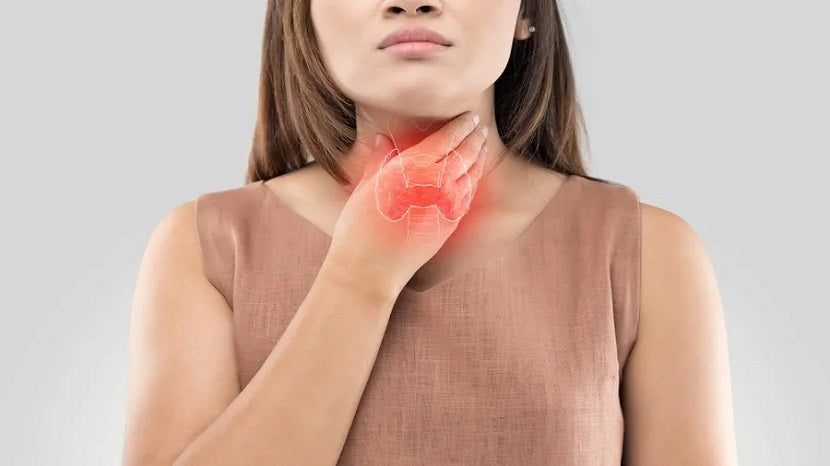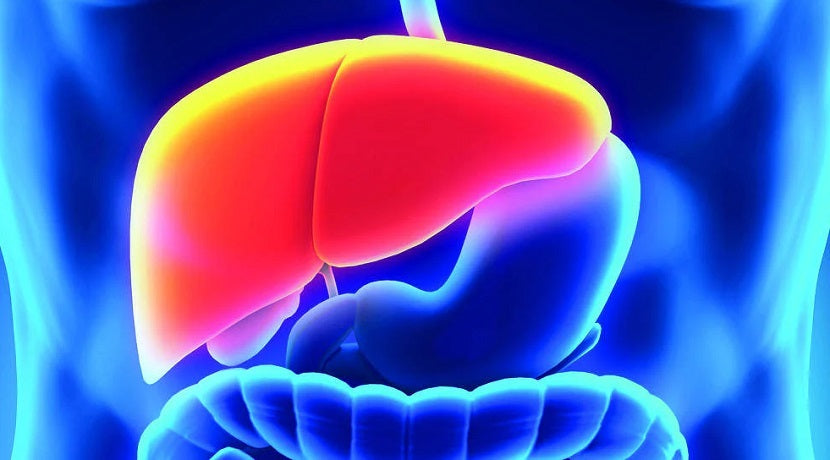If 50 is the new 40, and 40 is the new 20, then peri-menopause seems to be the new PMS.
It’s very common and generally affects women between the ages of 35 and 50, and we're seeing it occurring more frequently - and in younger women.
Progesterone
During the years before menopause, levels of progesterone typically decline, while oestrogen levels remain stable or even increase. This creates a situation commonly referred to as Oestrogen Dominance - as the ratio of progesterone to oestrogen changes and triggers a variety of symptoms.
Some of the symptoms that women suffer when progesterone declines include:
- Weight gain
- Increased PMS
- Breast swelling and tenderness
- Mood swings
- Poor memory
- Irritability
- Poor sleep
- Water retention
- Aches and pains
- Heavy periods
- Fibroid growth
Testosterone
Another hormone that is influenced is testosterone. Testosterone levels may start to decline during this phase and can be quite difficult to observe. These symptoms can be:
- Reduced sex drive
- Reduced response to sex
- General lack of well-being, energy, and ambition
- Depression
- Hair loss, or thinning hair
- Reduction in muscle mass
Oestrogen
The final piece to the puzzle is low oestrogen levels leading up to menopause. The ovaries reduce the production of oestrogen which triggers the elevation of Follicle-stimulating hormone (FSH) and luteinising hormone (LH), which triggers the characteristic symptoms of menopause. The ovaries continue to produce some oestrogen, along with the adrenal glands. But if the drop is dramatic and the adrenals cannot cope, then the symptoms can be dramatic until the body balances itself. Symptoms of low oestrogen include:
- Hot flushes
- Reduced energy
- Night sweats
- Vaginal dryness
- Depression
- Mood swings
- Dizziness
- Headaches
- Memory loss
- Urinary incontinence
- Arthritic aches and pains
It's critically important that from the age of 35 to 50, women are aware of the changes starting to occur, and support the endocrine control centres during this phase to avoid these symptoms and ensure a healthy menopause.
If these symptoms are suppressed with hormone treatments or ignored, then the underlying attempt of the body to try and manage this transition naturally is sabotaged. It can lead to a range of other issues, such as:
- Weight gain
- Thyroid reduction
- Skin breakouts
- Mood swings
- Depression
- Irritability
- Insomnia
- Premature ageing
- Premature menopause
The Current Approach
The current approach to treating perimenopause is to replace any deficient hormones - namely progesterone, testosterone or DHEA (another hormone which is reduced). Although there may be an initial relief of symptoms, the problem with this approach is three-fold:
- Firstly, when you provide the body with an external hormone, it immediately reduces its own natural production. So when menopause rolls around, the situation is only compounded.
- Secondly, the oestrogen levels stay elevated. This doesn't treat the issues of oestrogen dominance, and the prolonged elevation of oestrogen isn't good for the body on many levels, particularly related to cancers.
- Finally, the supplementation of hormones confuses the endocrine system, which reduces the body's innate ability to control hormone levels - which results in a further hormonal imbalance. It’s a slippery slope once you get onto it.
However, there are effective natural options that can help you to regain your health and restore a natural sense of calm and balance.
5 simple steps to treating perimenopause naturally
1: Diet and lifestyle.
Eating a low-processed, alkaline and high-antioxidant diet is important to allow the body's detoxification & elimination systems to work efficiently. The reason oestrogen rises is that the body lacks the ability to metabolise oestrogen effectively.
It requires optimal liver and digestive function, and if the liver is sluggish, then many of these symptoms develop. We recommend taking an additional liver support supplement containing natural amino acids and herbal medicines.
For digestion, it's important to take fermented drinks and fermented vegetables to build up the gut's natural balance and defences. These bacteria assist in the breakdown of hormones excreted by the liver.
Our 8-Week Program has recipes for these drinks.

2: Manage stress levels
Stress is a common issue with women at this stage of life - with busy lives, running households, and careers to manage. Often women take care of themselves last, and stress builds up and affects the endocrine balance.
The adrenals become exhausted and cannot manage the additional production of oestrogen required leading up to menopause. The results are the dramatic symptoms of menopause. So managing stress is critical. Ensuring adequate sleep; regular exercise; and yoga & meditation are all really important to ensure stress levels are kept to a manageable level.
3: Balance the hormonal control centre
At this time of life, we know hormones are starting to shift towards menopause. It largely depends on how well your body copes with this process. Your hormonal control centre - the Hypothalamic-Pituitary axis - is the centre which regulates your hormones.
What we often find is that diet and lifestyle changes alone are sometimes just not enough to correct the underlying imbalance. This is where a few key herbal medicines come into play... Sage, Vitex and Black Cohosh, when combined, have a unique synergistic effect that nothing else can achieve.
4: Improve hormone metabolism
One of the reasons many perimenopausal symptoms develop is poor hormone metabolism which allows oestrogen levels to rise unopposed against progesterone. By improving liver function and bowel clearance the body can remove the excess oestrogen. Happy Greens has been designed to do exactly this by providing natural substances to enhance hormone metabolism in the liver and the LIVE probiotics improve digestive function.
5: Increase natural oils
The body requires healthy oils in the diet to produce the necessary levels of hormones. Increasing natural sources of oils such as avocado, nuts and seeds, salad dressings with cold pressed oils give the body a source of good oils to assist in the production of hormones.
Luckily Happy Hormones contains the perfect ratio of these three herbs.
Happy Hormones works directly on this control centre to allow the body to balance its own hormone levels naturally.
And let's not forget this is a natural process. You shouldn't have any symptoms! Women living traditional lifestyles, and eating traditional foods don’t experience menopausal or perimenopausal symptoms. So it’s very much a Western condition, and we need to rely on natural medicines to allow the body to control its own hormone levels.
The first step is to take our comprehensive women's health profile assessment. Over 300,000 women have completed the assessment and find it is an excellent tool to understand their hormonal situation better. We send you a full report with proactive steps to take back control of your hormones naturally.












Leave a comment
This site is protected by hCaptcha and the hCaptcha Privacy Policy and Terms of Service apply.